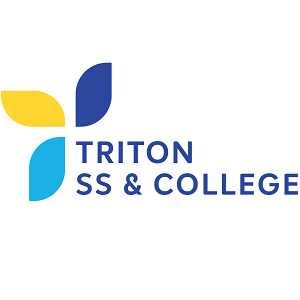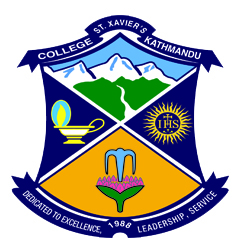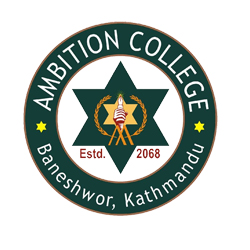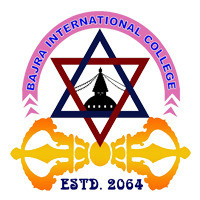Overview
Bachelor in Social Work (BSW) at Navodit College, Samakhushi, Kathmandu
Bachelor in Social Work (BSW) at Navodit College runs under Tribhuvan University (TU) and focuses on community engagement, field learning, and clear academic writing. The course is taught from the Samakhushi campus with a steady routine of classes, supervision meetings, and field tasks.
Students who prefer structured study, short written work, and practical exposure find this pathway suitable. Your learning moves from classroom concepts to supervised visits, case notes, and reports that mirror real work in Nepali communities.

Highlights
-
Affiliation: Tribhuvan University (Faculty of Humanities and Social Sciences)
-
Duration: Four-year undergraduate degree
-
Study location: Samakhushi, Kathmandu
-
Medium: English and Nepali (as the subject demands)
-
Core focus: Community work, social policy, human behavior, research basics, and documentation
-
Field learning: Supervised placement and periodic field reports
Curriculum Details
Students study foundations in social work methods, human behavior, Nepal’s social structure, and social welfare administration. Core areas generally include:
-
Introduction to social work, ethics, and values
-
Case work, group work, and community organization
-
Social policy, social welfare, and governance in Nepal
-
Human behavior and the social environment
-
Basic statistics and research methods for social work
-
Communication, report writing, and documentation
Assessment follows TU rules. The college conducts unit tests, terminals, and feedback sessions. You learn to read policy texts, write short analytical notes, and present findings with references.
Objectives
-
Build clear understanding of social work practice in Nepal’s context
-
Develop steady habits in note-making, reflection, and documentation
-
Strengthen field skills through supervised placements and community tasks
-
Encourage ethical practice, confidentiality, and respect for diversity
-
Prepare students for roles in NGOs, community programs, and public institutions
Scope
Graduates work in community development, child protection, public health outreach, disaster response support, education programs, and social protection projects. Many take roles in NGOs, INGOs, cooperatives, local governments, and schools as social mobilizers, project assistants, or documentation staff.
Students also prepare for public service exams or continue to master’s programs in social work, sociology, gender studies, or development studies.
Learning Outcomes
By the end of the program, students can:
-
Apply basic case work and group work methods in field settings
-
Conduct community profiling and needs assessments with simple tools
-
Prepare field diaries, visit reports, and short evaluation notes
-
Read and summarize policy and legal provisions relevant to social protection
-
Communicate with stakeholders in meetings, interviews, and small seminars
-
Maintain ethical practice, confidentiality, and accurate records
Skill Development Modules
-
Field diary and reflective journals (weekly entries with supervisor review)
-
Basic research toolkit: survey forms, key informant interviews, and simple analysis
-
Documentation and report layout for NGOs and local bodies
-
Presentation practice: slide decks, short posters, and viva-style questions
-
Safety and self-care briefings for field visits and community work
Teaching Methodology
Teaching follows a planned calendar with clear weekly targets. Classes combine lectures, guided discussion, and task-based learning. Supervision meetings help you connect field experience with classroom concepts.
Guest sessions by practitioners present examples from local programs. Counseling supports subject selection, field placement choices, and higher study planning. English and Nepali mediums are used as needed for clarity and reach.
Admission Requirements
-
Academic qualification: Ten Plus Two (+2) or equivalent from a recognized board, meeting TU’s minimum entry criteria for BSW
-
Process: Submit the application within the announced deadline with transcripts, character certificate, photographs, and ID. Entrance or screening runs if TU or the college announces it for the intake. Final admission follows verification and seat availability.
Career Opportunities
-
Social mobilizer, project assistant, field officer (NGOs/INGOs, CSOs)
-
Community outreach in education, health, WASH, and protection programs
-
Documentation and reporting roles in local bodies and development projects
-
School counseling support roles where permitted by rules and training
-
Research assistant for surveys, baseline studies, and evaluations
-
Pathway to master’s study and public service examinations
Scholarships and Financial Aid
Navodit College offers scholarships based on academic merit and social inclusion. Categories include distinction achievers, children of recognized martyrs of the 2062 movement, district and school toppers, students from remote areas, Dalit/scheduled caste, and other deserving students under college rules. Applicants should check the latest intake notice for criteria, quotas, and required documents.
Why Choose BSW?
-
TU-affiliated BSW with steady classroom work and supervised field exposure
-
Clear writing practice through diaries, reports, and case notes
-
Practical examples from Nepali communities and local institutions
-
Bilingual support and shift options that match student schedules
-
Scholarship options that recognize merit and representation
Conclusion
BSW at Navodit College offers a grounded path for students who want to work with people and institutions. You build skills in field interaction, documentation, and basic research while keeping ethics at the center. The course prepares you for entry roles in community work and gives a base for advanced study or public service.
FAQ
How long is the BSW at TU?
Four academic years under Tribhuvan University.
Is field work compulsory?
Yes. Students complete supervised placements and submit reports as part of coursework.
What is the teaching medium?
Classes run in English and Nepali according to the subject and level.
Can I study further after BSW?
Many graduates apply for master’s programs in social work and related fields.
Which documents are needed for admission?
Application form, +2 transcripts, character certificate, photographs, and ID. Follow the latest college notice for deadlines and any screening requirements.






















